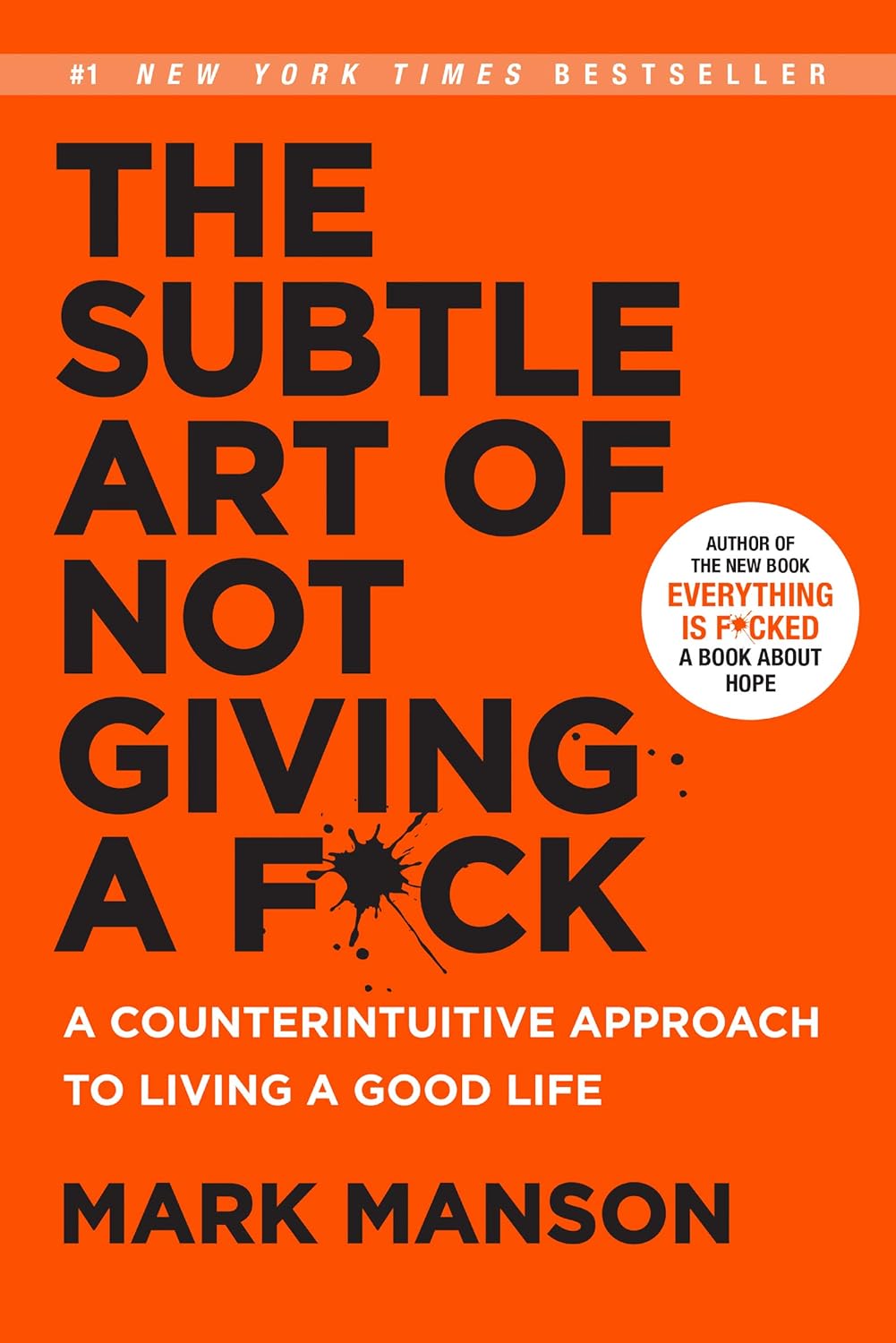
Life today often feels like a never-ending treadmill of stress, burnout, and existential dread. Between endless work demands, social media comparisons, and the pressure to “do it all,” it’s no wonder so many of us are asking: Why does everything feel so hard?
These 13 books don’t just sympathize—they dive deep into the systemic, psychological, and cultural reasons behind our collective sense of overwhelm.
Whether it’s late capitalism, technology, or our habits, these reads will help you make sense of the chaos and find your footing.
1. The Overworked American: The Unexpected Decline of Leisure by Juliet B. Schor

You’re not imagining it: work culture has become a silent tyrant. Juliet Schor’s seminal book argues that the 40-hour workweek—once a symbol of progress—is now a relic. Instead, we’re trapped in a cycle of overwork driven by economic inequality and societal pressure to produce, produce, produce. She reveals how corporations and politicians have eroded our time off, leaving us exhausted and disconnected from hobbies, family, and self-care.
What rings true today? The cult of productivity, Schor critiques, is alive and well. Apps, hustle culture, and side hustles promise fulfillment but often deliver guilt and burnout. As one reader noted, “This book made me realize I was punishing myself for taking weekends—and that’s not my fault.”
2. Atomic Habits by James Clear

Feeling overwhelmed? James Clear’s Atomic Habits is your antidote. He argues that massive change doesn’t come from grand gestures but from small, consistent improvements. Want to stress less? Stack habits like a 5-minute meditation or a nightly journal entry. The magic lies in the compounding effect: tiny wins add up to profound transformation.
Clear’s genius? He reframes failure as part of the process. As he writes, “You don’t rise to the level of your goals. You fall to the level of your systems.” This is a must-read for anyone drowning in “all-or-nothing” thinking.
3. The Road Less Traveled: A New Psychology of Love, Traditional Values, and Spiritual Growth by M. Scott Peck

Life is suffering. Yes, really. M. Scott Peck’s classic suggests that pain is inevitable—but it’s also our teacher. He argues that spiritual growth requires delayed gratification, responsibility, and embracing discomfort. Think of it as ancient wisdom for modern anxiety: your stress isn’t a bug—it’s a signal to grow.
One fan shared, “Peck made me stop fighting my emotions. Instead of hating my panic attacks, I started seeing them as a call to slow down.” Bold, yes. But in a world obsessed with quick fixes, this book’s radical acceptance is refreshingly honest.
4. Overwhelmed: Work, Love, and Play When No One Has the Time by Brigid Schulte

Brigid Schulte’s Overwhelmed is a wake-up call for anyone drowning in the “busyness” myth. She argues that the time famine gripping modern life isn’t just about poor planning—it’s rooted in systemic failures. From 24/7 work cultures to social media’s relentless comparison game, we’re trapped in a cycle where downtime feels like a luxury. Schulte exposes how outdated workplace norms and societal expectations leave us perpetually drained, even on weekends.
Her research is eye-opening. She notes that many of us confuse busyness with productivity, leading to a toxic cycle of guilt when we can’t “do it all.” But here’s the kicker: Schulte doesn’t just diagnose the problem. Drawing on interviews with experts and everyday people, she offers strategies to
5. Daring Greatly by Brené Brown

If you’ve ever felt like a fraud in a high-pressure world, Brené Brown’s here for you. She argues that vulnerability—owning your flaws and fears—is the key to resilience. In a society that shames imperfection, she redefines strength as showing up authentically, even when it hurts.
A striking point: “We numb vulnerability, but we can’t selectively numb emotions.” This means that avoiding failure also means avoiding joy. Brown’s research on shame resilience is a lifeline for anyone navigating social media’s highlight reels or workplace imposter syndrome.
6. The Courage to Be Disliked by Ichiro Kishimi and Fumitake Koga

Life feels heavy because we’re shackled by the weight of other people’s expectations. Japanese philosophers Ichiro Kishimi and Fumitake Koga use the principles of Adlerian psychology to argue that true freedom comes from rejecting the need for approval. The book presents a dialogue between a philosopher and a young man, gradually revealing how our fixation on what others think traps us in anxiety and self-doubt.
The authors contend that happiness isn’t found in changing how others see us, but in changing how we see ourselves. By letting go of the desire to please everyone, we can finally pursue our path without guilt. One reader noted, “This book flipped my script on rejection. Now I see it as a sign I’m living authentically, not as a personal failure.”
7. The Shallows: What the Internet is Doing to Our Brains by Nicholas Carr

The internet isn’t just changing how we live—it’s rewiring how we think. Nicholas Carr’s The Shallows delves into the neurological impact of our digital habits, arguing that constant scrolling and multitasking are eroding our capacity for deep focus and critical thinking. The more we jump between tabs and notifications, the less we’re able to engage in the sustained concentration needed for meaningful work or reflection.
Carr’s research reveals a troubling truth: Our brains are plastic, meaning they adapt to the stimuli we give them. By training ourselves to skim and click, we’re sacrificing the mental bandwidth needed for creativity and problem-solving. As one reader noted, “This book explained why I can’t read a book anymore—I’ve lost the patience for deep thinking.” The takeaway? To reclaim mental clarity, we must design our digital environments intentionally, creating spaces for uninterrupted focus in a world designed to distract.
8. The Price of Privilege by Madeline Levine

If you’re wondering why privilege often feels like a curse, Madeline Levine’s book has answers. She argues that affluence can breed emptiness, as affluent families grapple with pressure, isolation, and the paradox of having everything yet feeling nothing. The pursuit of status and achievement often comes at the cost of emotional connection and authenticity.
Levine’s research shows how over-scheduling and under-attending to kids’ emotional needs leads to anxiety, depression, and substance abuse. One parent who read the book shared, “I realized I was so focused on my kid’s resume that I missed their personhood.” The book isn’t about guilt—it’s a call to prioritize presence over perfection.
9. The Art of Not Giving a Fck by Mark Manson*

Mark Manson’s blunt title hides a profound message: you can’t please everyone, so stop trying. He argues that in our quest to avoid discomfort, we spread ourselves thin across countless priorities, none of which truly matter. The result? Exhaustion and a lack of direction.
Manson’s solution? Strategically care about less. By identifying what truly matters and unapologetically dismissing the rest, you free up mental bandwidth for what’s important. As he writes, “If you don’t prioritize your life, someone else will—and you probably won’t like their choices.” The book’s irreverent tone makes tough love go down easy.
10. The Paradox of Choice by Barry Schwartz

Ever feel paralyzed by endless options? Barry Schwartz explains why more choices don’t equal more happiness—they often lead to decision fatigue and regret. From grocery aisles to career paths, the illusion of endless possibilities leaves us dissatisfied, even when we make “good” decisions.
Schwartz reveals how unlimited choices erode our confidence. We’re constantly haunted by the thought that there might be a better option just out of reach. The antidote? Setting boundaries on options, accepting “good enough,” and focusing on gratitude for what we have. As one reader put it, “This book taught me that happiness isn’t about having it all—it’s about appreciating what you’ve got.”
11. The Upward Spiral: Using Neuroscience to Reverse the Brain Chemistry of Depression, Stress, and Anxiety by Alex Korb

Feeling stuck in a loop of negativity? Alex Korb’s The Upward Spiral explains how small changes in behavior can rewire your brain’s chemistry. Drawing on neuroscience, he debunks the myth that mental health struggles require massive overhauls. Instead, he shows how micro-actions—like making your bed, Exposure to sunlight, or even smiling—can trigger positive neurochemical shifts.
Korb’s research reveals a powerful truth: You don’t have to wait for motivation to strike. By starting with tiny, actionable steps, you can gradually build momentum and improve your mental state. One reader shared, “This book taught me that ‘fake it till you make it’ isn’t just a cliché—it’s backed by science.” The beauty of Korb’s approach is its accessibility: You don’t need grand gestures to begin healing.
12. The Power of Now: A Guide to Spiritual Enlightenment by Eckhart Tolle

Anxiety thrives in the gap between past regrets and future fears. Eckhart Tolle’s The Power of Now offers a radical solution: Ground yourself in the present moment. He argues that most of our suffering stems from identifying with our thoughts and losing touch with the “now.” By cultivating awareness of the present, we can break free from the mental loops that drain our energy.
Tolle’s teachings aren’t just New Age fluff—they’re a practical guide to silencing the noise. He introduces techniques like observing your breath or noticing physical sensations to anchor yourself in reality. As he writes, “The more awareness you bring to what you do, the more effortless it becomes.” The book challenges you to see how much of your stress is self-generated—and how to stop feeding it.
13. Digital Minimalism: Choosing a Focused Life in a Noisy World by Cal Newport

If you’re exhausted by the constant tug of notifications and the endless scroll, Cal Newport’s Digital Minimalism is your roadmap to reclaiming calm. He argues that our relationship with technology has become unsustainable, prioritizing convenience and connection at the cost of attention and fulfillment.
Newport’s solution? A 30-day digital detox followed by intentional reintegration of tech tools that truly serve you. He emphasizes that quality relationships and deep work require time and focus, things our devices constantly fragment. As one reader put it, “This book helped me see my phone not as a lifeline but as a shallow substitute for what I need.” By curating your digital life, you create space for what matters.







